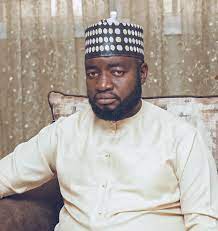A member of the House of Representatives, Yusuf Gagdi, has explained his controversial statement, “I know whom we know.”
On Monday, Gagdi defended his remark during a live interview on Channels Television’s Politics Today.
In a public gathering a day ago, a member of the House of Representatives stated, “At the Supreme Court, we will know who they know, and they will know who we know.”
The lawmaker’s remark garnered condemnation from a variety of sources, with some calling for a public apology.
Regarding the significance of the contentious phrase, he stated that it has been a consistent part of his political messaging since the beginning of his political career.
He stated, “From the day of my political journey, my slogan has always been ‘we know whom they know, but they don’t know whom we know.’”
“From the day of my political journey, my slogan has always been ‘we know whom they know, but they don’t know whom we know,” he said.
“I can give a video reference of this statement I have meted when I was campaigning for the position of Plateau State House of Assembly.”
The 43-year-old cited video evidence of him using this statement during his campaigns for the Plateau State House of Assembly and the National Assembly in his first and second tenures.
“I can equally show you the video of those statements I made when I was campaigning for the National Assembly in my first tenure and I can show you the video of what I have said when I am campaigning for my second tenure,” he said.
According to the lawmaker, the statement was never a point of contention when he campaigned for the House of Assembly or his initial term in the House of Representatives.
“Why was that not a problem to them when I was campaigning for the House of Assembly and my first tenure as a member of the House of Representatives?” he asked.
“When I always say ‘we know whom’ I don’t say, ‘who we know’ they should listen carefully.”
Gagdi mentioned that when he says ‘we know whom,’ he means ‘we know God.’ He stated that his opponents may be underestimating the power of faith, asserting, “Maybe I am confronting someone who thinks his power can give him what God cannot give him.”
“Therefore, the need for me to always, with strength, tell my opponents that ‘we know whom you know but you don’t know whom we know’.


